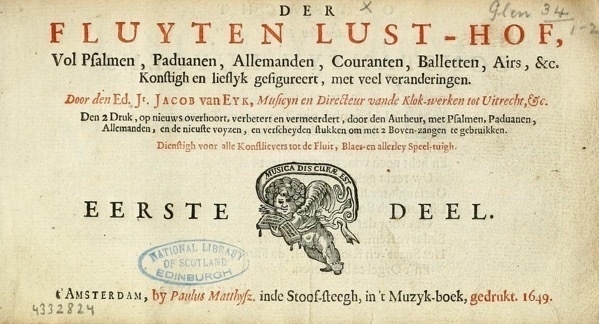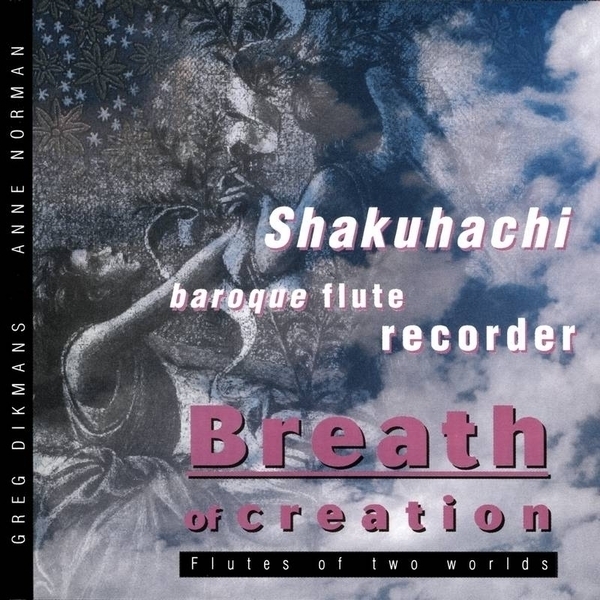The Flute’s Pleasure Garden
Jacob Van Eyck and Der Fluyten Lust-hof

The FLUTE’S PLEASURE GARDEN
Full of Psalms, Pavanes, Allemandes, Courantes, Ballets, Airs, &c.
Artfully and delightfully arranged, with many variations.
By the Honourable Mr Jacob van Eyck,
Musician and Director of the Carillons in Utrecht, &c.
The second edition, carefully revised, improved, and expanded by the author, with Psalms, Pavanes, Allemandes, and the newest voices, and various pieces to be used with two upper voices.
Useful for all lovers of the art of the flute, wind and all kinds of musical instruments.
I’ve been playing Van Eyck’s recorder solos for over 50 years. They are a joy to play and a gift to all recorder players.
The title of Van Eyck’s magnum opus — Der Fluyten Lust-hof — is the inspiration for the title of this blog.
Der Fluyten Lust-hof comprises over 140 pieces, making it the largest surviving collection of solo music for a wind instrument from the 17th century. It is unprecedented for its time.
It provides a practical guide to 17th-century performance practice and the art of improvising variations on psalms and popular songs and dances.
Jacob van Eyck (c. 1590–1657)
We know little of van Eyck’s life. He was of noble birth on his mother’s side and blind. In 1624 he was appointed beiermeester (chime master, i.e. player of the carillon) at Utrecht cathedral in Holland, but appears to have made a name for himself mainly as an organist and recorder player.
In 1648 he was given an increase in salary on condition that every now and then he should divert ‘the people promenading on the churchyard with the sound of his little flute.’
Such a lovely idea. I assume he only played in the churchyard in the summer months.
Listen
Doen Daphne d’over schoone maeght is an English folk song that appears in several sources as When Daphne did from Phoebus fly.
This is from a CD recording I made in 1995 with shakuhachi player Anne Norman: Breath of Creation – Flutes of Two Worlds.
